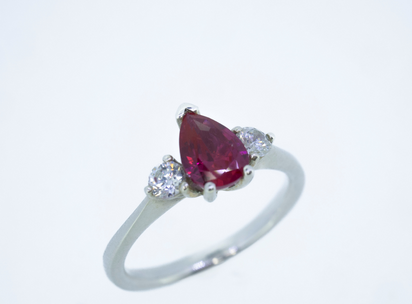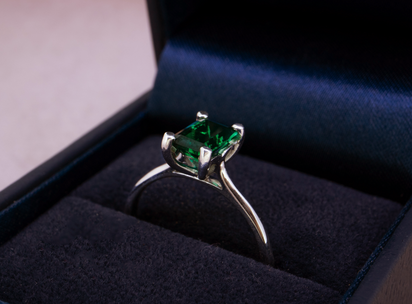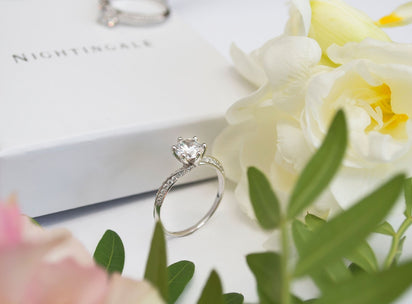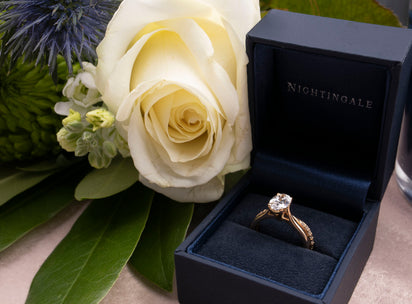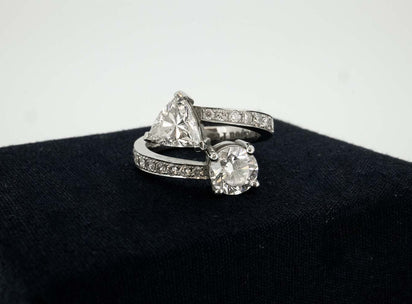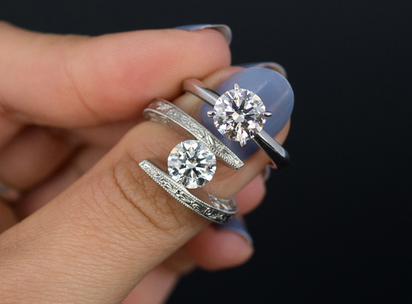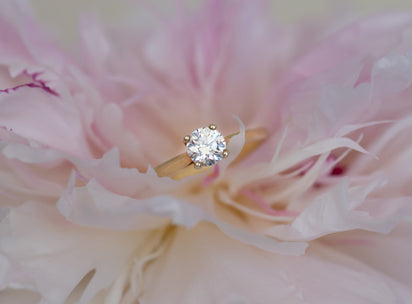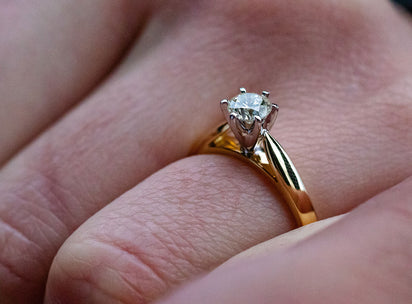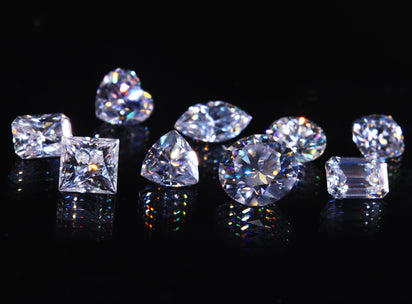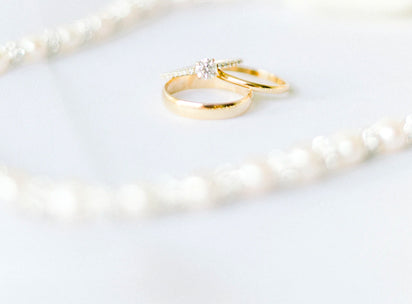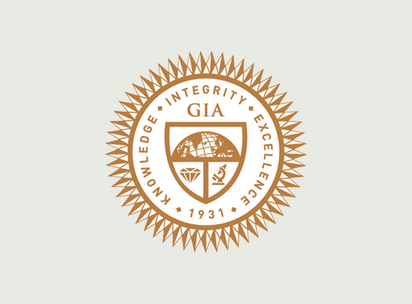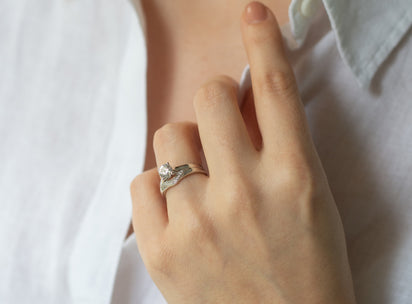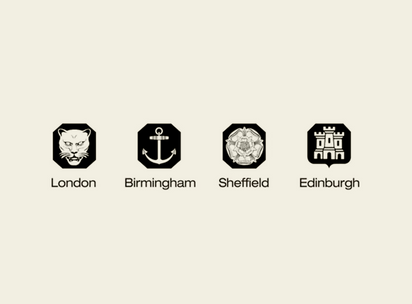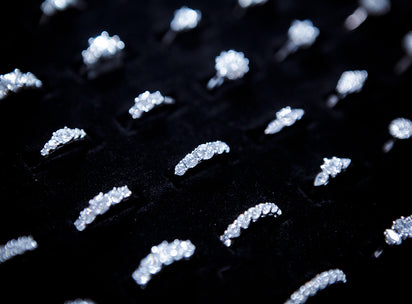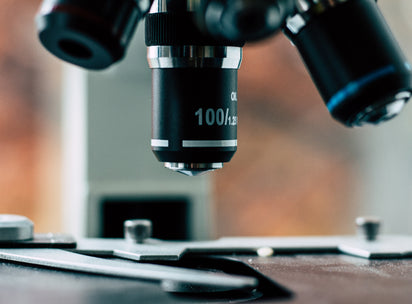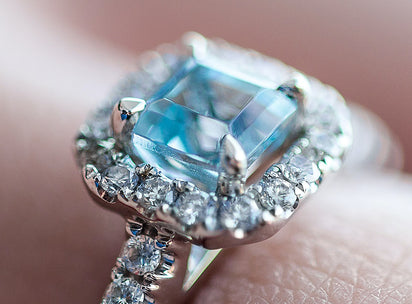Finding ethical diamonds
Diamond and mineral mining is a destructive process by its very nature. Tonnes of rubble and soil need to extracted from the earth for every diamond carat or gram of precious metal and it's usually done by underpaid workers in developing nations with poor working conditions.
The issues here are numerous, so let's go into how to keep ethical when picking out diamonds.
1. Try to get information on the mine and country of origin
There are lots of diamond mines working hard to make their operations safer for workers and free from forced and child labour.
But, there are many more that don't really care. And with the current methods of exporting diamonds, most jewellers have no idea if their diamond is from an ethical mine or a bad one.
This lack of accountability in the diamond supply chain is why we recommend asking which mine the seller's gemstones come from.
More than likely the answer will be "we don't know", which should throw out a big red flag to you.
You might be told that they don't know their specific origin, but all their diamonds are certified by the Kimberley Process which means they're ethical and conflict-free.
You can read more about the Kimberley Process and its shortcomings in this article, but in brief, it isn't perfect and it offers very little guarantee that the diamond you're buying has come from a reputable source.
If you want an ethical gemstone, we don't recommend buying any which can't be traced back at least to their country of origin. Ideally you want to know the specific mine which your jeweller should be able to verify for you.
 Example diamond origin report with country of origin included
Example diamond origin report with country of origin included
2. Don't assume that 'conflict free' actually means conflict free
It's sad that the term 'Conflict-Free Diamonds' has devolved into more of a marketing slogan instead of a genuine guarantee that the product you're buying hasn't contributed to a brutal civil war or human rights violation.
We mentioned the Kimberley Process above. It was created with the express goal of removing conflict diamonds from circulation, but in reality, has fallen far short of its initial goal.
It has a very restrictive definition of a 'conflict diamond', which only covers diamond trading that is carried out by rebel groups. That means no consideration is needed for general working conditions, or exploitation carried out by non-rebel groups like local governments.
So if you see a sign in a shop claiming conflict-free diamonds, ask what this actually means to each seller. Again, if they can't give a clear answer then it's best to assume the worst and look elsewhere.
Learn more about the shortcomings of the Kimberley Process here
3. Research alternatives to mined diamonds
Even the best diamond mines on the planet have a significant impact on the environment. Despite the best efforts by the likes of Dominion Diamond Corporation (who have developed a gold standard in their CanadaMark scheme), there's only so much that can be done to minimise the adverse effects of mining.
That's why many people are considering alternatives to buying a mined diamond.
Lab grown diamonds
The most exciting development in our opinion is the use of lab-grown gemstones. These gemstones are completely indistinguishable from mined diamonds and require no destructive mining.
And whilst they do contribute greenhouse gasses to the atmosphere, it's typically less than 20% of even the most environmentally friendly mines. We love lab diamonds at Nightingale, and if you'd like to learn more we produced a comprehensive guide for them.
Recycled diamonds
A more niche option is to look into recycled gemstones. These stones will all have been mined at some point in their life, but using one means that you're not fuelling demand for newly mined diamonds.
The big drawback of recycled diamonds is that many are unreliable in terms of quality and origin. Many won't have physical certificates because they've been lost and discarded over time. Some recycled diamonds will have an engraving of their certificate number onto the diamond itself, but it's a relatively new practice so older gemstones may not have it.
Generally we recommend against using recycled diamonds because of the difficulty that comes with verifying their origins
Imitation diamonds
If you're not too attached to the idea of having an actual diamond in your ring (which you shouldn't feel obliged to!) you could even consider lower quality alternatives such as cubic zirconias or moissanite.
Whilst these can look similar to diamonds, they're not identical in the same way that lab grown diamonds are.
For example, moissanite doesn't reflect white light as much as a diamond which can lead to a sparkle which is a bit too intense for some tastes.
Cubic zirconia is nowhere near as hard as a diamond, and tend to get damaged fairly easily. Also their sparkle factor is nowhere near that of a diamond.
We don't recommend cubic zirconia, but moissanite can be a good alternative if you don't mind the subtle differences in appearance. We've got a full comparison here if you're interested
Making Your Diamond Choice
So, what to do with all the information you've just been bombarded with? Well, first of all you should make the choice between a mined diamond, a lab diamond, or a diamond alternative.
Buying an ethically mined diamond
If you choose to go down the mined route your most ethical choice would be a CanadaMark diamond.
A CanadaMark diamond will come from one of three diamond mines (Ekati, Diavak and Gahcho Kué) which are ran to the highest of environmental and labour standards.
CanadaMark diamonds come with the following assurances;
- Mined responsibly in Canada (with appropriate oversight from government organisations)
- Traceable to a specific mine via a laser engraved certificate
- Not repaired/ treated using non diamond materials
CanadaMark diamonds tend to be a little more expensive than comparable diamonds from other sources, but the ethical certainty is usually worth the cost in most buyers' eyes.
Aside from Canadian diamonds, you can also buy a responsibly sourced diamond from other countries. The key here, as mentioned earlier, is to be able to trace it back to its mine of origin which you can then research further.
Most diamonds come from African nations, which almost universally have a lower standard of worker welfare than 1st world countries.
There's a fine balance to be achieved by jewellery retailers like us, because whilst working conditions will not be up to the standards that we're used to, mining does provide wealth and jobs to local communities where other opportunities are generally limited.
Finding suppliers for Nightingale is always an evolving process. Canada diamonds are available for all our ethical engagement rings, as are traceable diamonds from mines in Botswana.
We work hard to find the best mining organisations that treat their employees fairly whilst investing in the local communities with infrastructure (such as improving water availability) and education projects so every purchase gives as much back to local workers as possible.
Buying a non-mined diamond
Many of our customers aren't happy wearing a mined diamond on their finger, and in those cases we highly recommend lab grown diamonds.
With minimal environmental impact, the creation of high-paid jobs plus an 80%+ reduction in greenhouse gasses, they're the obvious choice for many customers.
Ethical Metal Sourcing for Diamond Jewellery
After the diamond itself, the metal used for the ring's band and mount is another area you need to consider when going ethical with your jewellery purchase.
Many of the same problems with diamond mining are also present with gold and other precious metal mining.
We'll focus primarily on gold and platinum for the purposes of this guide, but the other metals contained in gold alloys like copper and silver all have their own issues with ethical sourcing.
Gold mining for jewellery
Historically, South Africa was the world's largest producer of gold, at one point in the 1970s they were responsible for 79% of the entire world's gold supply.
In fact, they were such a large gold producer that their largest mine, the Witwatersrand Basin, was almost single-handedly responsible for the early growth of Johannesburg, South Africa's largest city.
In current times, more developed nations like Australia, the US and Canada have ramped up production which has helped to contribute a greater proportion of ethically sourced gold to the market but many of the world's top producers still have questionable records on human and worker's rights.
For this reason, we recommend customers looking to buy gold jewellery, or use gold in their bespoke rings, use Fairtrade gold.
The Fairtrade scheme has some of the strictest standards in the world for gold mining and buying from their approved mines means working conditions are up to an acceptable standard, miners get paid a fair price for the gold they extract and human rights are policed effectively.
Platinum mining for jewellery
Most of the world's platinum comes from South Africa, mining 110 million tonnes in 2018, over 5 times its nearest competitor, Russia (21million). Zimbabwe takes the third spot at 14 million tonnes.
Again, to put it delicately, these countries don't have the best records on worker welfare, so the possibility of exploitation is a very real concern.
Fairtrade platinum is much less common than gold, and as of writing is difficult to source in the UK making ethical options more limited.
Recycled gold and platinum
Recycled metals are widely available for jewellery, however their effectiveness at reducing newly mined metal is debatable.
Financial investments drive the majority of gold demand, so as long as there are investors wanting to buy, mining rates will continue to buy regardless of recycled use.
Advice for buying jewellery metal
When buying gold the best route is to find a provider who sells Fairtrade gold.
When it comes to platinum, Fairtrade is much harder to come across than gold so in many cases you may need to compromise on this if your heart is set on platinum.
As always, the best way to buy ethically is to be educated and ask questions. Any ethical jeweller should have no problems listing the places they source their gold and platinum from, and what ethical schemes their suppliers are signed up to.
Non-specific answers to your questions should be seen as warning signs.
If you'd like some more information on the choice of jewellery metals available to you, then take a look at our guide on the subject.
As always, the more informed you are, the better decisions you can make.
Rounding things up...
As you can see, making ethical diamond ring choices isn't easy! The opaque nature of the industry makes it very difficult to source gemstones and materials responsibly.
The majority of high street retailers simply don't have the correct sourcing processes in place, despite paying lip service in their marketing efforts.
As an independent specialist, we'd naturally recommend you go with an independent specialist who knows their stuff. But the biggest takeaway from this guide should be this...ask questions.
Do you know the mine this diamond came from? Is the gold Fairtrade? How do you ensure your 'conflict free diamonds' are conflict free?
Most retailers rely on consumers not asking these important questions so they can continue working without transparency. It's the industries responsibility to become more ethical, but history has told us that they aren't up to that task without the demands of customers changing.
You can be part of the change that forces more ethical practices with your next purchase!
If you'd like to be completely at ease when buying an ethical engagement ring, why not consider Nightingale?
We'd love to help you, and we hold ourselves to some of the highest standards in the UK.
Just get in touch to start the conversation!
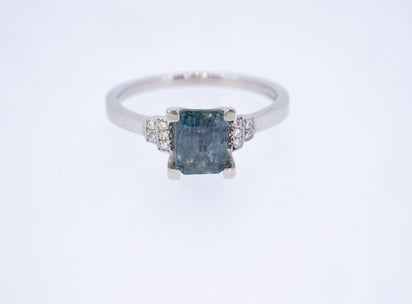

 Example diamond origin report with country of origin included
Example diamond origin report with country of origin included